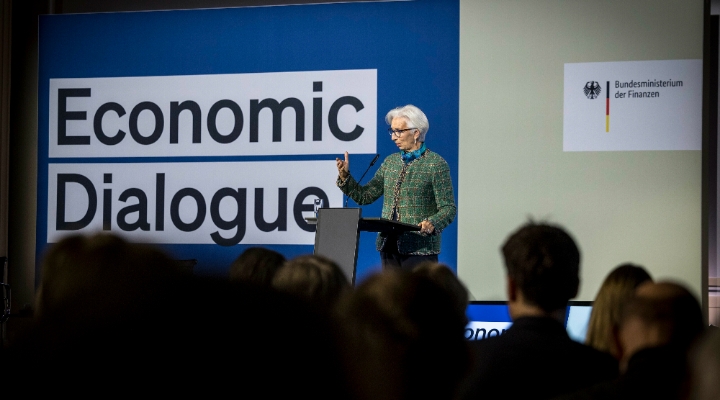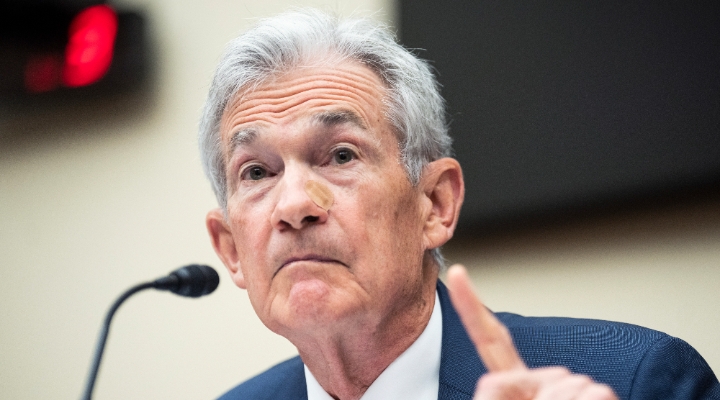
Eurozone inflation fell further in November, led largely by moderating energy prices, fresh data from Eurostat, the European Union's official statistics office, suggested today.
The bloc's annual inflation rate is expected to be 2.4% in November 2023, down from 2.9% in October, Eurostat said. Consensus expectations had been set at 2.7%.
Looking at the main components of the measurement, food, alcohol and tobacco are expected to have had the highest annual rate in November (6.9%, compared with 7.4% in October), followed by services (4.0%, compared with 4.6% in October), non-energy industrial goods (2.9%, compared with 3.5% in October), while energy was the biggest moderator (-11.5%, compared with -11.2% in October).
"Looking at the breakdown of inflation, it's clear the fall in energy prices was the overwhelming driver of the headline rate falling to 2.4%," says Michael Field, European market strategist at Morningstar.
"However, energy prices can be volatile, so they can easily rise again in the coming months. Meanwhile, inflation in areas where consumers spend much of their hard-earned cash, such as food, still rose by almost 7% year over year. Costs of housing, which have been rising rapidly, are actually excluded from the HICP calculation."
Inflation Slowdown is Generalised Across Continent
The decline was largely expected after yesterday's consumer price index (CPI) data in Spain and in some German federal states, which also showed lower-than-expected price hikes. French inflation also went in the same direction, falling to a two-year low in November.
In Italy, meanwhile, ISTAT estimates the rate of CPI change in November was -0.4% on monthly basis and +0.8% on annual basis (from +1,7% in October).
"The slowdown in inflationary pressures is generalised across Europe," says Filippo Diodovich, senior market strategist at IG Italia.
"The lowest annual inflation was recorded in Belgium (-0.7%), Italy (+0.8%), Finland (+0.8%), and Latvia (+1.1%). Today's numbers suggest fears about inflationary pressures should be totally downplayed.
"The European Central Bank's restrictive monetary policies have cooled eurozone economies considerably. Especially the services sector that worried in recent months showed a 0.9% decline in prices on a monthly basis and 4.0% growth on an annual basis. The fall in energy prices continued".
Labour Markets and Economic Risks
The inflation slowdown is good news but the markets are looking also at the labour data.
"Inflation across the region is waning, and meanwhile, the labour market remains tight," Field said yesterday during a Morningstar webinar on the Investment outlook for 2024. In October 2023, the euro area seasonally-adjusted unemployment rate was 6.5%, stable compared with September 2023 and down from 6.6% in October 2022, according to Eurostat.
Investors are also keeping an eye on economic risks. According to a November forecast from the Organisation for Economic Co-Operation and Development (OECD), the eurozone can look forward to 0.5% annual gross domestic product (GDP) growth for the last three months of 2023. The bloc's GDP is expected to swell by 0.6% this year, followed by 0.9% in 2024 and 1.5% in 2025 respectively.
Field adds: "despite the large (and welcome) fall from the dark inflation days of 2022, we are still a way off the ECB's targeted 2% inflation rate, and it could be well into 2025 before we get there.
"However, in the meantime the easing that we are seeing in inflation rates should eventually feed its way into the economy. It still remains to be seen whether lower prices will be enough by itself to stimulate the Eurozone’s struggling economy."
When Will The ECB Cut Rates?
This poses serious questions for European Central Banks: should they keep rates high and risk recession, or reduce rates and potentially face a hot economy?
"These inflation figures confirm the scenario that [the] ECB will keep interest rates at current levels at upcoming meetings," Diodovich says.
"The data on consumer price erase most of the doubts expressed by the ECB governor, Christine Lagarde, who showed perplexity about the future path of inflation. It is true that at the moment it has only been the last two months that have shown a sharp slowdown in consumer price growth.
"However, should inflation show this trend again in the coming months, necessarily the ECB's monetary policy should change leading to a cut in the cost of money in the spring".



























